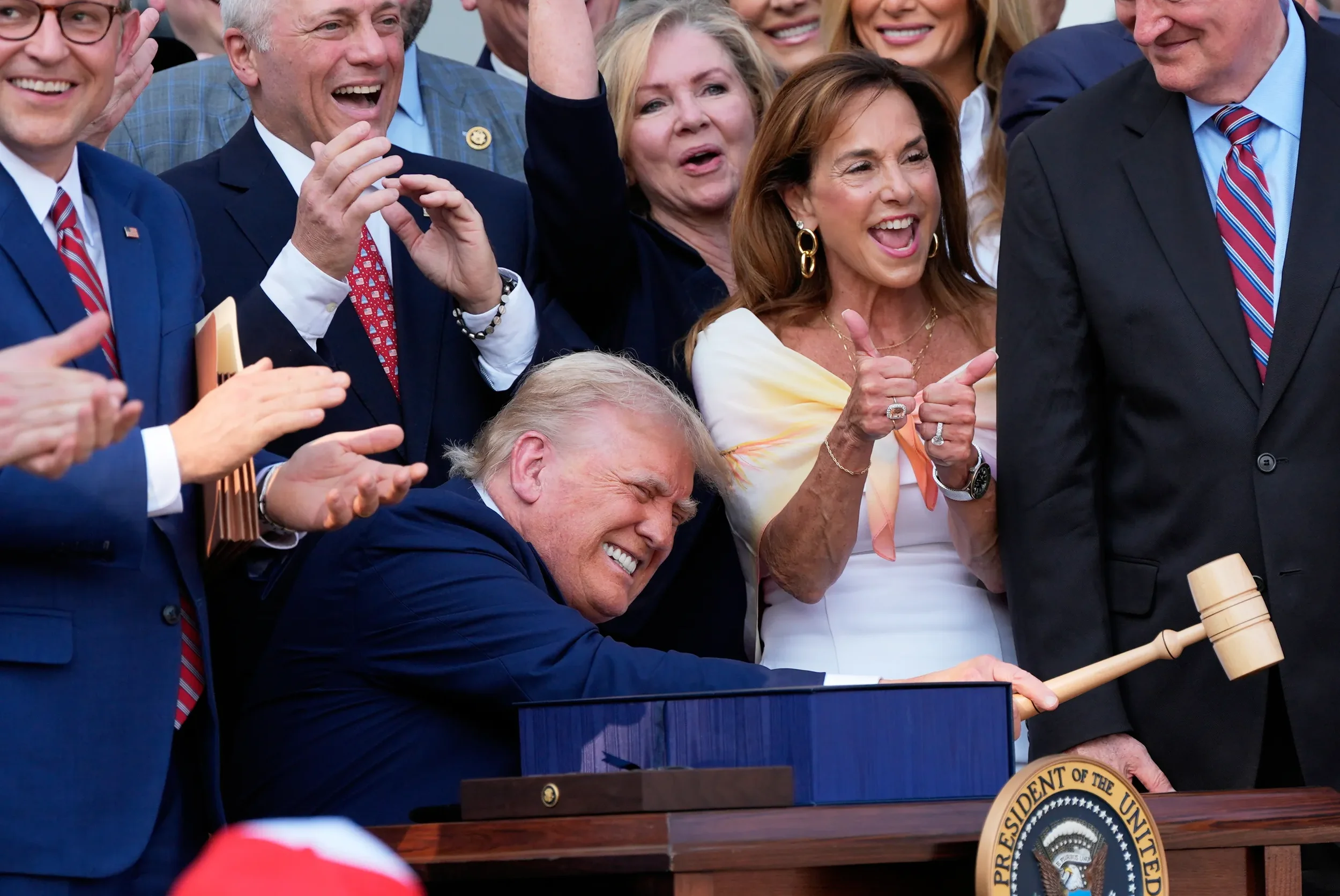Opinion | Amid Trump's crackdown, Maryland needs moral consistency
Alex Brandon/Getty Images
On August 11, President Trump announced a takeover of the Washington, D.C. police and the deployment of the National Guard on the streets of the nation’s capital.
He warned of “crime, bloodshed, bedlam, and squalor,” vowed to “take our capitol back,” and pointed to “caravans of masked youth” and “roving mobs of wild youth” rampaging through the city as justification for the move.
That rhetoric should sound familiar. His language echoes one of a dark, racist past: the War on Crime. In 1968, President Nixon ran on a platform stating, “lawlessness is crumbling the foundations of American society,” Senator Biden warned of “predators on our streets” on the Senate floor in 1993, and First Lady Clinton warned of youth with “no conscience, no empathy” and labeled them “superpredators” in 1996.
The connection grows even deeper. The War on Crime led to the wildly disproportionate incarceration of Black men and the overpolicing of Black neighborhoods. Washington, D.C., the current site of his anti-crime push, is a majority-minority city that has endured decades of overpolicing, disinvestment, and federal interference in local governance.
It is no coincidence that the handful of cities Trump also named, New York, Chicago, Los Angeles, Baltimore, and Oakland, host large Black and Brown populations, and are all run by Black mayors. His racialized, coded language revives a familiar pattern: law and order rhetoric used as a playbook that targets nonwhite populations.
It’s tempting to see this as another uniquely Trumpian revival of precedents from decades past, in line with his revival of the Alien Enemies Act of 1798 or blood-and-soil nationalism, but the playbook he’s following is not confined to the White House or the history books. We’ve seen it much closer to home, in Maryland’s response to youth crime in recent years.
Maryland legislators warned that juvenile justice policies were “degrading public safety” as “crime runs rampant.” State’s attorneys attacked the Maryland Child Interrogation Protection Act, a law that mandates all juveniles consult an attorney before being questioned, to give police even more power over youth.
It wasn’t just rhetoric, either. Governor Hogan funneled millions of dollars for prosecutors and police, and mobilized Maryland State Police to patrol “high crime” areas in Baltimore City.
President Trump, on August 5, stated on Truth Social to change the law to allow 14-year-olds to be charged as adults in Washington, D.C. Maryland already does that. Last year, Maryland even lowered the threshold: 10- to 12-year-olds can now face time in juvenile detention.
The patterns are similar, too. President Trump’s tough-on-crime actions come amid record lows in crime rates in Washington, D.C. Maryland was experiencing a 26% decrease in juvenile homicide arrests when narratives of rampant, violent youth crime led to new policy and legislation. Neither instances were data-driven: both were fueled by dangerous rhetoric and anecdotal evidence.
Many Maryland politicians and lawmakers were quick to criticize President Trump’s recent actions, and rightfully so. But we should take this moment to be self-critical. Maryland has repeatedly fallen to the same trap of abandoning data for demagoguery. The echoes of Trump’s rhetoric through D.C.’s streets are easy to catch, but if you listen closer, that same language has been playing out in Maryland for even longer.
We should condemn both the militarization of D.C. streets and the state police patrolling Baltimore neighborhoods. We should decry both Trump's call to charge 14-year-olds as adults in D.C. and Maryland’s policies that have already done the same, and worse. We should both attack Trump's disregard for due process and strengthen our protection for children in police interrogations.
This moment demands more than moral outrage; it requires moral consistency. If Maryland lawmakers truly believe Trump's fear-mongering is dangerous, they must confront the same tactics in their own legislation. We need the courage to demand evidence-based policies both in Washington and Annapolis, because whether in Charles Street or Pennsylvania Avenue, our justice must not be laden with fear and rhetoric.

